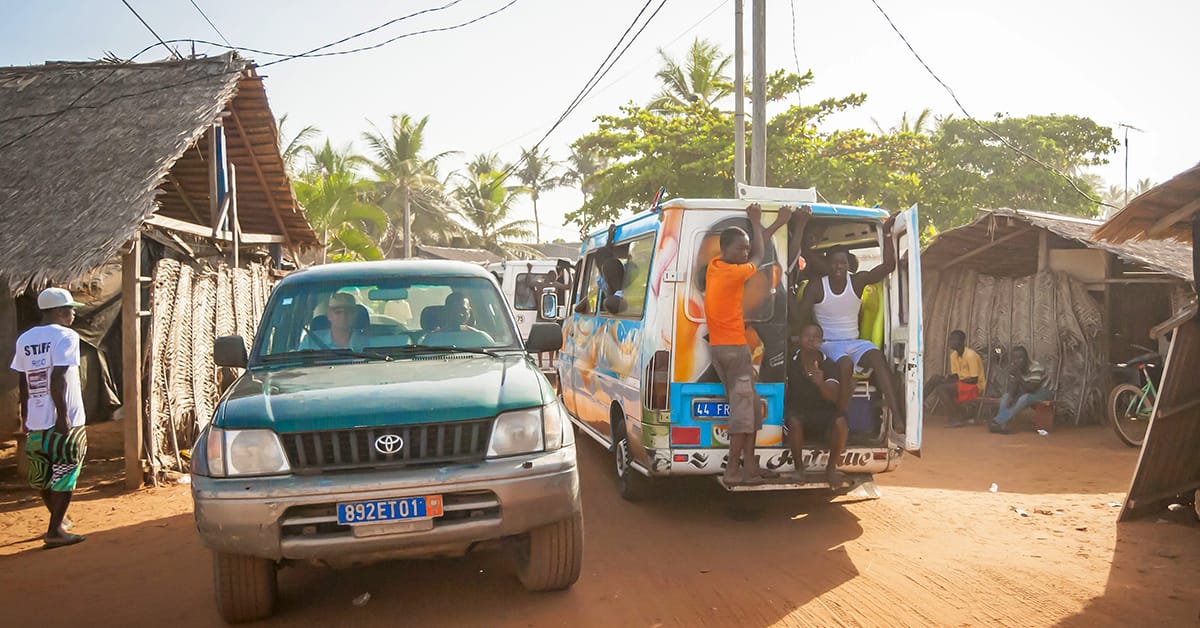Côte d’Ivoire’s growth resumes in a post-pandemic world.

| VITAL STATISTICS |
|---|
| Location: West Africa |
| Neighbors: Liberia, Guinea, Mali, Burkina Faso, Ghana |
| Capital city: Yamoussoukro |
| Population (2022): 27,533,285 |
| Official language: French |
| GDP per capita (2020): $2,325.70 |
| GDP growth (2020): 2.0% |
| Inflation (2020): 2.4% |
| Currency: West African CFA franc |
| Investment promotion agency: The Investment Promotion Center |
| Investment incentives available: Foreign investment and the repatriation of funds not restricted; depending on the situation—tax credits; exemptions on VAT, business license tax and customs duties; free trade zones |
| Corruption Perceptions Index rank (2021): 105 |
| Political risks: Government not able to find accommodation with opposition parties, who boycotted 2020 presidential election; though 2021 parliamentary elections were peaceful with all parties represented. |
| Security risks: Conflicts in neighboring Mali, Liberia and Burkina Faso a serious risk, with armed groups in border areas; al-Qaeda and other extremist organizations pose major regional terrorism risk; high level of crime, including fraud, violent street crime, robberies on roads and public transport |
| PROS |
|---|
| Before the pandemic, one of fastest-growing economies in Africa |
| Prestige of having head office of African Development Bank |
| Government appears to be making serious efforts against corruption |
|
CONS |
|---|
|
High risk of diseases |
|
Heavy dependence on agriculture and related industries |
|
Exposure to commodity prices and climate conditions |
|
Recurring building collapses |
|
Although CFA franc pegged to euro, euro is down against the US dollar |
|
Complicated tax system |
|
Slow, opaque government decision-making |
With the ravages of the Covid-19 pandemic, Côte d’Ivoire’s economic growth slowed in 2020. However, the West African nation made up for lost time in 2021, when growth accelerated to an estimated 6%, according to the International Monetary Fund (IMF), driven by recovery in exports, investment and domestic consumption.
“In 2020, we did not know the severity of the situation, even in terms of decision-making,” explains Youssouf Carius, managing director of investment manager Pulsar Partners. The IMF projects GDP growth at 6.5% in 2022 and 6.4% in 2023, if conditions normalize.
Côte d’Ivoire has a stable political and economic environment, leading to Fitch Ratings’ mid-2021 upgrade of the country’s long-term foreign currency issuer default rating from BB to B+ with a stable outlook. Fitch cites the country’s peaceful March 2021 parliamentary elections and sustained reduction of political risk. Côte d’Ivoire had two civil wars since 2002; but “the risk of an escalation of political divisions into armed conflict has materially receded over the past decade,” Fitch said.
The government’s continued fiscal measures and reforms will gradually reverse what Fitch calls “the temporary deterioration of the budget balance.” The rating agency projects strong growth after the pandemic, with “comparatively high commodity dependence.”
A large part of Côte d’Ivoire’s economic future rests on its logistics and transportation capabilities, with connections to Nigeria, Benin, Burkina Faso and other countries, says Carius: “You have the road infrastructure, but not just the road—you have the logistic capacity [that] you won’t find in other countries in the region. Senegal has far less logistics capacity.”
Côte d’Ivoire’s currency—the West African CFA franc—has stability. In addition to being the primary currency for Benin, Burkina Faso, Guinea-Bissau, Mali, Niger, Senegal and Togo as well as Cote D’Ivoire, it is also equal in value to the Central African CFA franc; and both are interchangeable with the euro. “You have the same risk as if you were investing in Europe,” Carius says. That euro peg can be an advantage or a disadvantage depending on currency fluctuations.
The US Department of Agriculture plans to invest $61 million in the country’s cashew industry alone, and $886.2 million is to come from the IMF to lend further stability. Côte d’Ivoire exports gold, electricity and rubber, as well as cocoa and other food products.
American businesses operate successfully in oil and gas exploration and production, agriculture and value-added agribusiness processing, power generation and renewable energy, information technology services, the digital economy, banking, insurance and infrastructure.
This combination has attracted agribusiness giant Cargill; logistics companies such as DHL; banks, including Citi; online accommodations provider Airbnb; hoteliers Radisson and Novotel; and home-goods manufacturer Unilever.
However, doing business in Côte d’Ivoire comes with obstacles and hurdles. These include a government practice of awarding sole-source contracts without competition. Also, a complex tax system and slow government decision-making will challenge domestic and foreign companies. Lack of transparency in government decisions and limited access to credit further complicate the nation’s investment environment.



